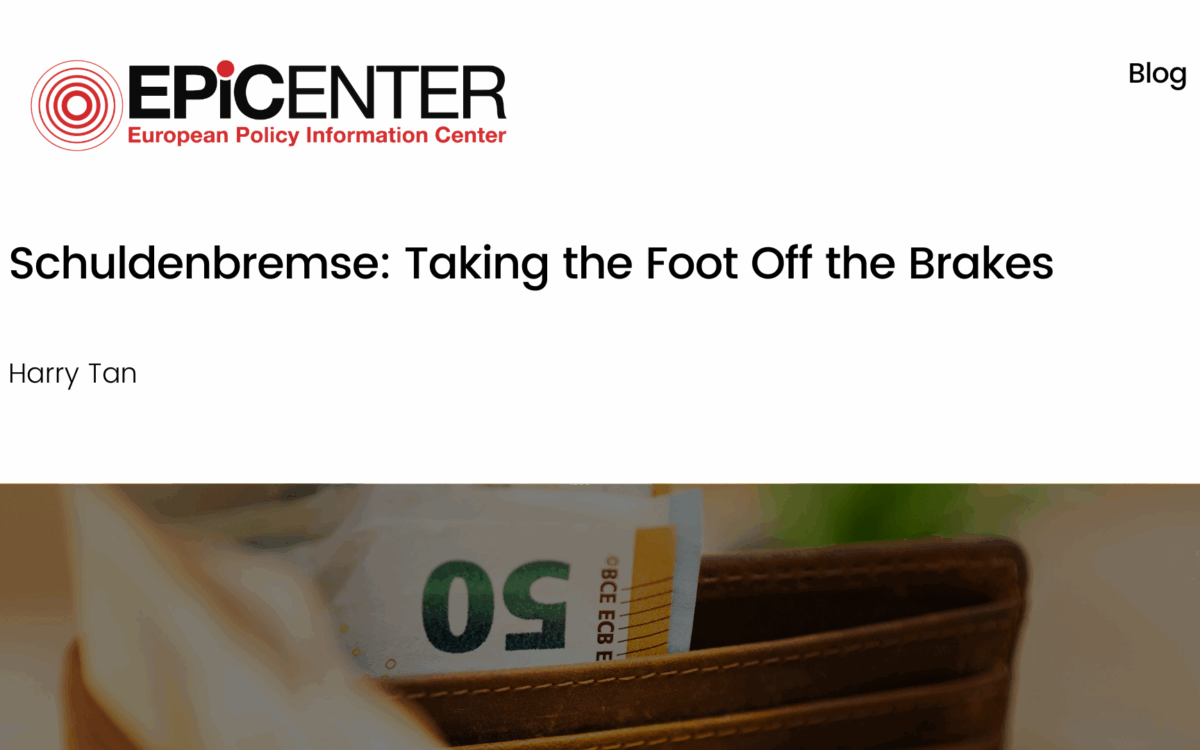Inflation Reduction Act: How Protectionism Affects US–EU Relations

Inflation Reduction Act: How Protectionism Affects US–EU Relations
Christopher Jakoubek // 6 March 2023
The Inflation Reduction Act signed by the Biden administration in the autumn of 2022 could be one of the most expensive climate legislation in the world. Its goal is to spend $400 billion over the coming decade to slash carbon emissions by 40 per cent. The law aims to provide large sums of subsidies or tax credits to lower costs for companies and to incentivise investment in the production of renewable energy.
Part of the legislation could be considered preferential to energy manufactured in the United States rather than abroad. This is not a one-off decision, but rather a whole new ‘industrial policy’, as can be seen with the recent laws intended to boost the domestic semiconductor industry.
Without engaging in the pros and cons of the legislation from a US perspective, this article looks at potential consequences of the Inflation Reduction Act on US–EU trade relations.
The main point of contention in Brussels can be summed up by the statement of Margrethe Vestager, Executive Vice-President of the European Commission: ‘The Inflation Reduction Act will negatively affect not only our green manufacturers but also our upstream component suppliers.’
So, while the EU nominally welcomes US government investment in green technology, it is worried that the $207 billion in subsidies will kill off the EU’s green energy manufacturers or force them to leave Europe for cheaper energy and larger subsidies in the US. Additionally, this US subsidy drive tied to locally produced content breaks World Trade Organization rules. The EU and Washington have established a joint task force in the hope of resolving this dispute. However, France and Germany are already pushing for the EU’s own protectionist drive to subsidise and protect their respective key industries. Such policies bring more problems than solutions.
The main problem will be securing long-term economic growth, which, with today’s high inflation and economic woes, should be a priority for EU members. As our EPICENTER Discussion Paper shows, the increasing protectionism after the 2008 financial crises harmed the prospects of economic growth. It notes that lower trade costs affect economic growth positively..
What drove the massive growth during the peak years of globalisation was the realisation that the trade and exchange of goods globally allows us to focus our productive effort on production of goods or services we do best, rather than allocate big portions of economic output towards the impossible task of producing everything that we want and need. This is the path that today’s politicians on either side of the Atlantic no longer wish to take.
In practice, for consumers to qualify for the Act’s tax credit of up to $7,500 on the purchase of an electric vehicle (EV), the vehicle’s battery must be made of minerals and components extracted and produced in the US. Even if these companies are protected from competition by political favouritism, the expenses for the creation of wholly new supply chains, with all the production, manufacturing, and transport infrastructure that they entail, would surely prove massive.
Additionally, since their businesses would be highly reliant on such subsidies, the level of government interference is bound to increase. The economy would be severely hampered by protectionism, which would make it US production less efficient, and increased scarcity due to diminished output would increase prices. In the scenario most likely to result from this Act, EV sellers would raise their prices in response to a tax credit offered to their customers. Say the EV costs $50,000 but the customer can get a $7,500 credit, a dealer would likely raise the price to $57,500 and pocket the extra $7,500.
In the grand scheme of things, protectionist practices that rely on preventing competitors from entering a market while also subsidising costs for domestic producers are a sure way of increasing prices without seeing any improvement in the quality of products. Lower trade can also lead to a reduction in productivity growth, as businesses are less exposed to global competition.
Research on the effects of trade barriers also suggests that a 20 per cent reduction in trade flow can drag output down by 5 per cent in the long run; as such, breaking integrated global supply chains may prove catastrophic for growth. Most countries are going to be negatively affected by the reduction in global demand, especially if they supply inputs for affected countries’ exports.
Loss of business confidence and increased uncertainty may make it harder to get private companies to focus on new markets such as renewable energy, as they might be worried about further retaliatory protectionist moves by affected countries. Such uncertainty will likely reduce private investment, affecting global financial conditions. The price of companies’ equity or corporate bonds might fall, as investors may expect trade barriers to reduce profitability.
Overall, these policies come at the worst geopolitical time, with Europe facing an economic slowdown and a war coupled with energy crises. If the US means to retain its Inflation Reduction Act while also keeping European partners happy, it must avoid further fuelling the flame of fragmentation. Tit-for-tat retaliation by America’s partners would not only risk undermining the green energy transition but also economic well-being.
EPICENTER publications and contributions from our member think tanks are designed to promote the discussion of economic issues and the role of markets in solving economic and social problems. As with all EPICENTER publications, the views expressed here are those of the author and not EPICENTER or its member think tanks (which have no corporate view).



